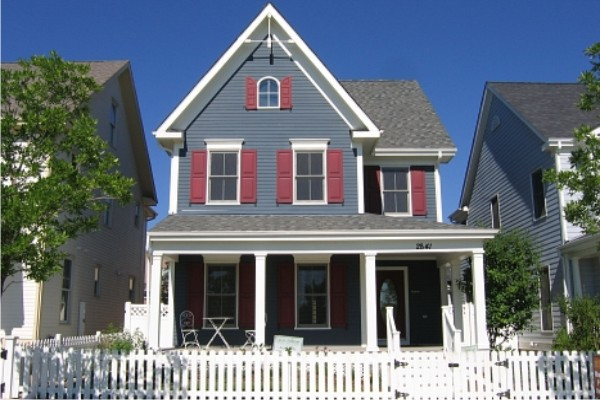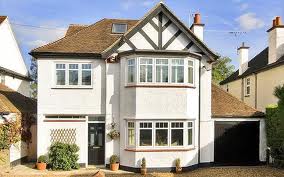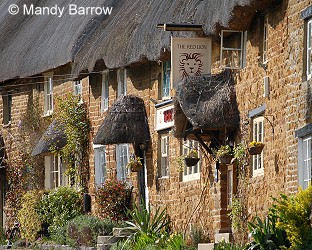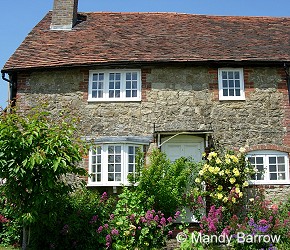
- •Введение
- •Содержание
- •Buying a house
- •Text 1. Buying a House: Daydream or Nightmare
- •2.Vocabulary exercises
- •Revision Exercises
- •Directions. Look at the picture and fill in the blanks with an appropriate preposition.
- •3. Dialogues
- •1. Renting a Room
- •2. Looking for an Apartment
- •3. A Wonderful View from the Window
- •4. A Building Society
- •5. An Apartment to Let
- •6. A House for Sale
- •7. Buying a House
- •1. A House in the Countryside
- •1. Examining an Apartment
- •1 Место, где можно остановиться
- •2. Устройство на новом месте
- •3. Возможный жилец
- •4.Additionasl material
- •The Language of Estate Agents
- •Real estate Text 1. Real estate
- •I. Questions to the text:
- •II. Finish the following texts according to the text:
- •Text 2. Understanding real estate finance – the key to your success
- •Text 3. Real estate investment - the next step forward
- •Text 4. How flipping real estate can help you with your property investment?
- •III.Home reading Text 1. Types of flippers
- •Text 2. Real estate investment advisers – team that defines your success
- •Cliches for resume
- •IV. Topical vocabulary 1. General
- •Types of Dwellings
- •Рецензия на методические указания
III.Home reading Text 1. Types of flippers
Read and translate the following text and Answer the questions to the text:
Who is the Scout? (the Dealer? The Reailer?)
If you have a chance to go into flipping, who will you be: the Scout, the Dealer, the Retailer and why? Explain your choice.
There are basically three different types of real estate flippers. This classification is based on level of skill required:
• The Scout • The Dealer • The Retailer
The Scout
The Scout is often referred as the "bird dog" or information gatherer. A scout finds potential flipping deals and sells the information to investors who have the money and skills to execute the deal. When you are new to the game you can get started as a Scout for flipper investors. You not only make money but also learn from how the flipper investor executes the deal. As a 'bird dog' you find a property for sale and then pass on this information for a fee. Your fee will depend on the profit potential and price of the property. As a Scout you can make anywhere from $500 - $1000 each time your information leads to purchase of a property.
The Dealer
Like the Scout a Dealer also finds flipping deals for other investors. The only difference is that after he locates a bargain property he signs a purchase agreement with the owner in his name with the right to assign the contract. By doing so he has control over the property and can flip the contract at a much higher profit to the highest bidder. The Dealer is required to come up with the earnest money which increases his exposure. He also needs to have large contact data base of 'flipping investors' to on sell the contract.
Dealer who works full time can make over $10,000 per month without ever dealing with a tenant or fixing a property.
The Retailer
The Retailer is the 'Flipper Investor' who buys properties from a Scout or a Dealer. He buys the property to carry out improvements and to sell it at a profit to an owner-occupier. Retailer makes the most profits but also carries the most risk on each deal because he has to upfront the money. Unlike the Scout or Dealer who make their money quickly it can take the Retailer months to realize his profit.
Flipping real estate is very important aspect of becoming a successful property investor. Please read through numerous articles on this website explaining various facets of flipping that will provide you with certain level of confidence before you decide to use this strategy to your advantage.
Read the text and make the resume:
Text 2. Real estate investment advisers – team that defines your success
The quality of real estate investment advisers that you choose to work with will define your success. The people who are most likely to advise you on property matters are real estate agents, valuers, lawyers, and accountants. You may also like to consult your bank manager, mortgage broker, property manager, trades people, builder and architect.
These real estate investment advisers will form your core team that will define your success. Inputs from them will affect the quality of decision you make. Therefore it is important for you to surround yourself with the best possible team.
Always remember that you approach your team for advice only. You should never let them make decisions for you. Remember that each member of your team is an independent contractor with his own agenda. For instance a lawyer will normally guide you towards caution as he does not wish his advice to have any adverse impact at a later date. An accountant will only look at the numbers and not the property and its future potential. A real estate agent may highlight only the positives and not the downside of the property.
Ask questions, listen to everybody but keep your council. Final decision is always your responsibility. You will need to weigh the pros and cons, take into account risks and returns before making a final decision.
Real estate investment advisers that you select should invariably be property investors themselves. If they are property investors their quality of advice will be much superior because they will have a much deeper insight.
When you are starting out don't get intimidated by the professionals you meet specially the ones who wear suits and sit in flashy offices. They may confuse you with their jargon and knowledge and may make you feel inadequate. It is important to remember that these real estate investment advisers are there to do a job for you for which you are paying them. If you don't understand something ask them to explain it to you in layman terms.
Beware of people who call themselves experts. There are bankers who dish out millions of dollars in property loans but don't own a single investment property. Same is true for some smooth talking real estate agents, accountants and solicitors who will give you advise without having any worth while investments in their portfolio.
If you wish to seek advice go to people who have been there before you. Advice from such people is priceless and will save you hundreds and thousands of dollars.
Ask questions and do some background checks before employing services of a professional as a member of your team.
In many ways you will only be as good as your team of real estate investment advisors. Do not hesitate to pay a few extra dollars to hire the services of the best professional. Your investment in your team will pay you hundred times over.


Read the text and get acquainted with some statistics about housing in Britain. Make a resume on this text.
Answer the question: Why Is Housing in Britain the best value for money?
Text 3. HOUSING IN BRTAIN – THE BEST VALUE FOR MONEY
Over half the people in Britain live in their own houses, about a third live in property rented from the local council and one in eight live in privately-rented accommodation. The total number of dwellings is more than 22 million and houses are much more common than flats. More than 40% of families live in a home built after 1945. Although the number of houses built during the 1980s went down (especially in the public housing sector traditionally provided by local authorities) the number of people owning their own homes has more than trebled in the last 35 years. Under the conservative government many people who previously rented their homes from the local council were given the opportunity to buy them. There tax incentives for people who buy their own houses.
Buying a house is a large financial investment for many people and the majority buys their homes with a mortgages loan from a building society or bank. The loan is repaid in monthly installments over the period of 20 years or more. Some people rent or buy accommodations through housing associations which provide a financial alternative to the mortgage system. There has also been an increase in the amount of accommodation for older people, as the number of pensioners increases. Accommodation known “sheltered housing” provided homes for elderly and disables people.
The standard for housing has improved but while most of the old slum areas in cities have been cleared, many of the large squares of flats which replaced them as part of the high rise housing program of the 1960s have been criticized as being badly designed and built. Some have been pulled down and replaced with low-rise housing. However, because fewer houses were built and more council property was sold off there were fewer houses available, especially for young people and those who could not afford a mortgage. House prices tend to adjust according to how much money people are earning. In Britain the cost of buying somewhere to live varies considerably according to the area.


There are many different types of housing in Britain ranging from the traditional thatched country cottage to flat in the center of towns. Houses are often described by the period in which they were built are whether are terraced, semi-detached or detached. As well as preferring houses to flats, for many people a garden is also an important consideration. Although Britain is relatively small the areas where people live vary considerably: there are new towns and inner cities, suburbs, commuters’ belts and the open country side.

Paying for the home you live in is the biggest single item in the budget of most families and getting on the housing ladder can be difficult.
The average family moves once every seven years and the process of moving involves an estate agent, a building society, bank or insurance company for the finance, and a solicitors to handle the legal aspects of the buying and selling. The size of the house or flat in Britain still tends to be measured by the number of bedrooms rather than the area in square metres. In keeping with a nation of the home owners, gardening is popular spare time activity.
The number of homeless people in Britain has doubled since 1979. Reasons for this rise include the decline in the availability of rented accommodation, lack of council housing due to government cuts in grants to local authorities, who are responsible for public housing and the increase in house prices during the 1980s. Unemployment, changes in the social security benefit regulations and the number of young people leaving home also contributed to the problem. Many local authorities have been forced to put homeless families in hotels and bed-and-breakfast accommodation because of a lack of suitable flats and houses. While real earnings have risen faster than inflation and helped to push up house prices, debt has also increased, helping to leave some of those at the bottom of the seal without a home.
